When I first watched Anubhav Sinha’s Thappad, I left the cinema hall more than impressed by Taapsee’s performance and the way the movie called out patriarchy’s far-reaching effects.

But when I revisited the film on Amazon Prime Video, what struck me were the lessons Sachin Sandhu’s character development holds for our patriarchal society.

Kumud Mishra, who plays Taapsee’s father in the film, has never given a performance where he was anything less than fabulous.
But his role as Sachin Sandhu especially strikes a chord with the audience, despite being polar opposite to Bollywood’s parenting stereotypes. Or perhaps, because of it.
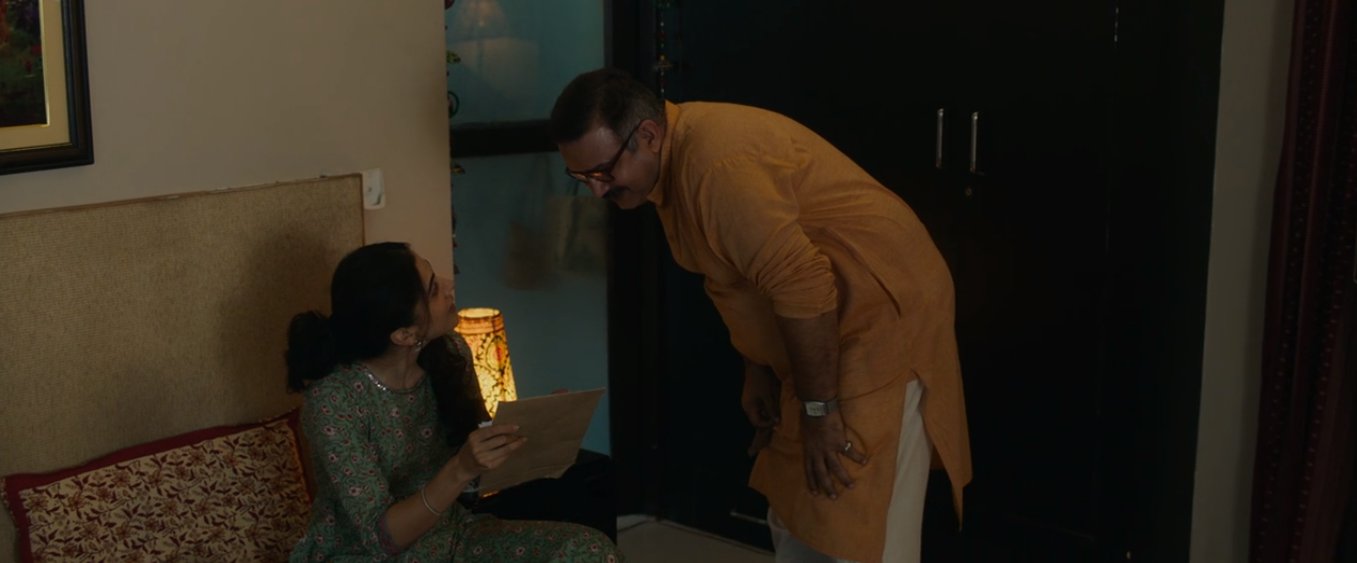
Sachin Sandhu is the father who values his child’s independence, even when is worried sick about their well being.
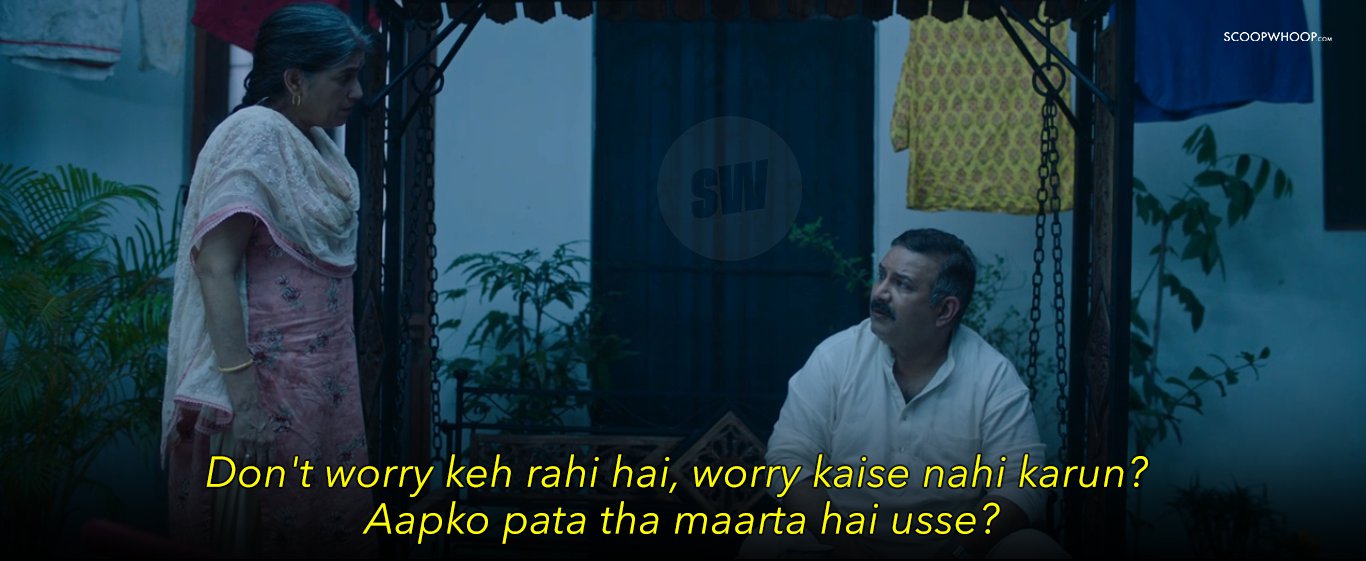
His first response to Amrita (Taapsee) getting hit, is not to ‘avenge her honor’ or to ask her to ‘accept the circumstances’. No, he instead worries about what her mental state is.
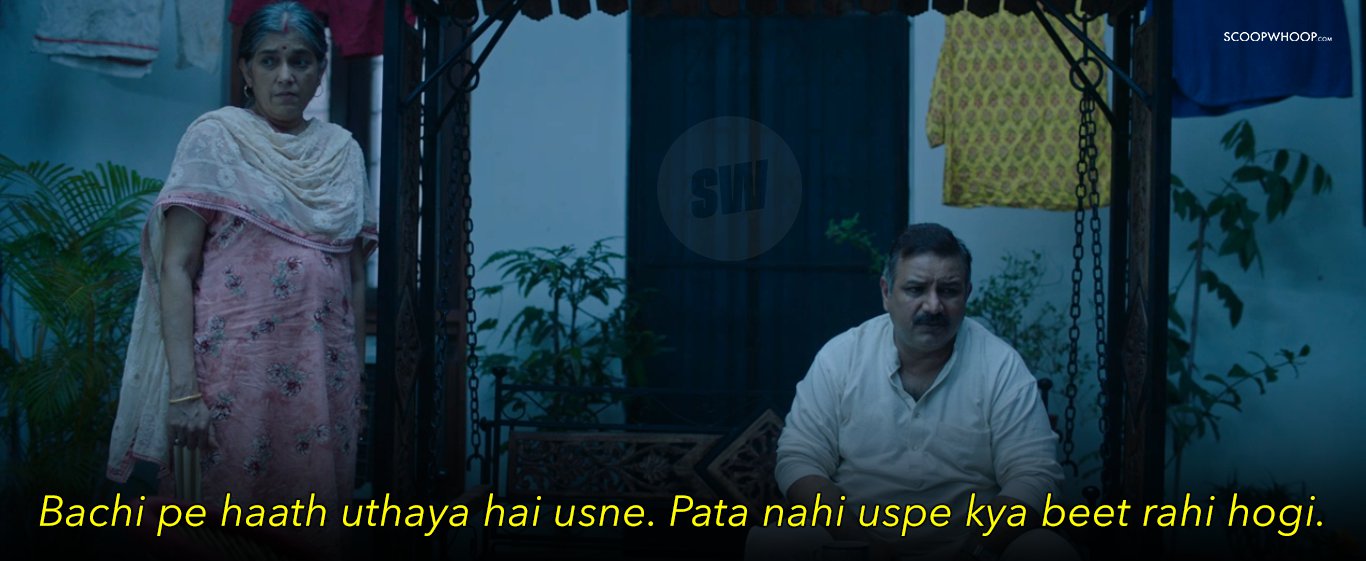
When Amrita decides to file for divorce and asks him for his advice, he does not mollycoddle her, blame her, or offer promises high on machismo.
Instead, he offers her the kind of advice that will guide her even when he may not be physically present to support her.
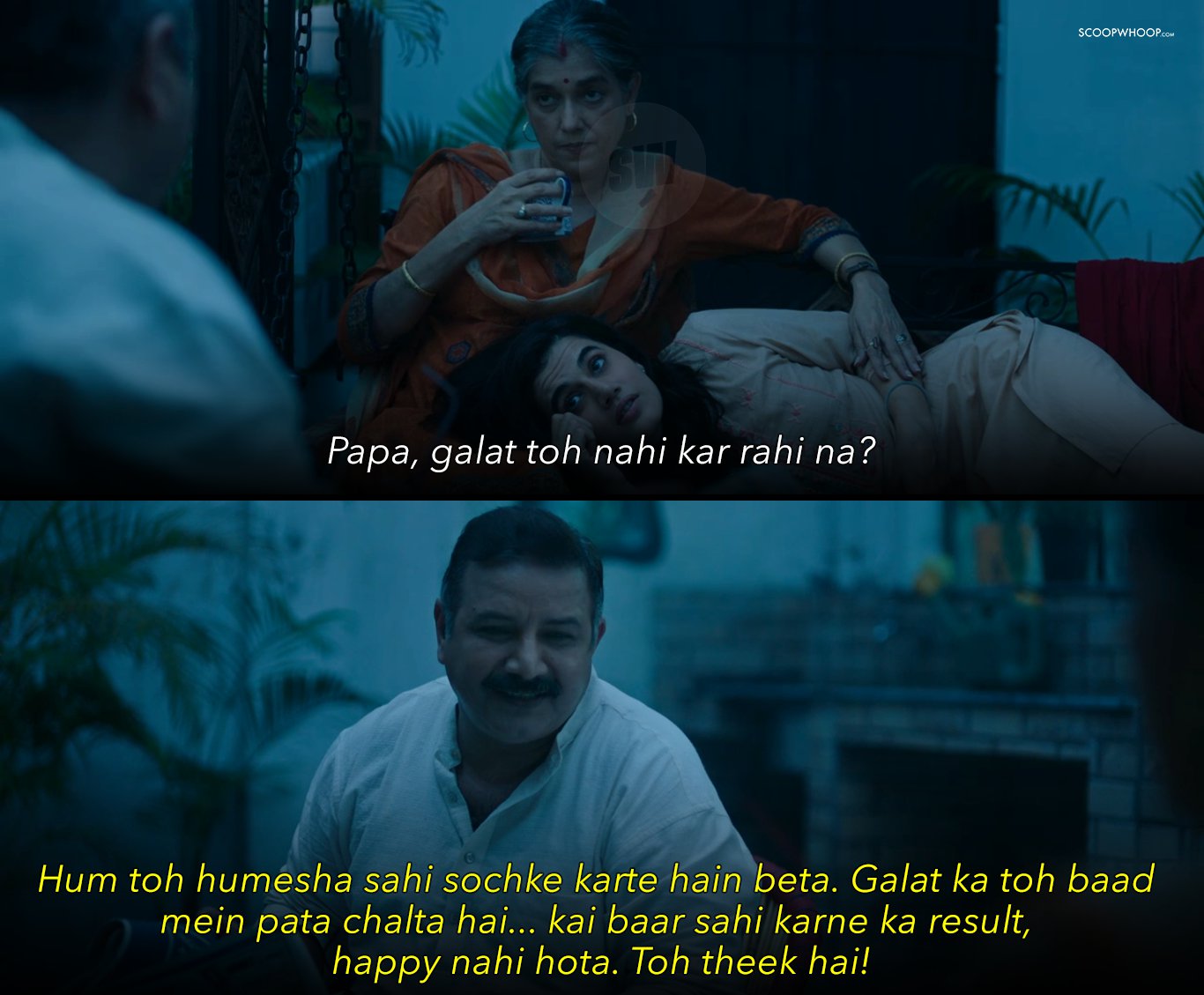
He is the husband who accepts his mistakes and consciously makes an effort to bring change. When he realizes that his wife let go of her dreams for him, his reaction is a fresh change from how Bollywood usually responds to such situations.
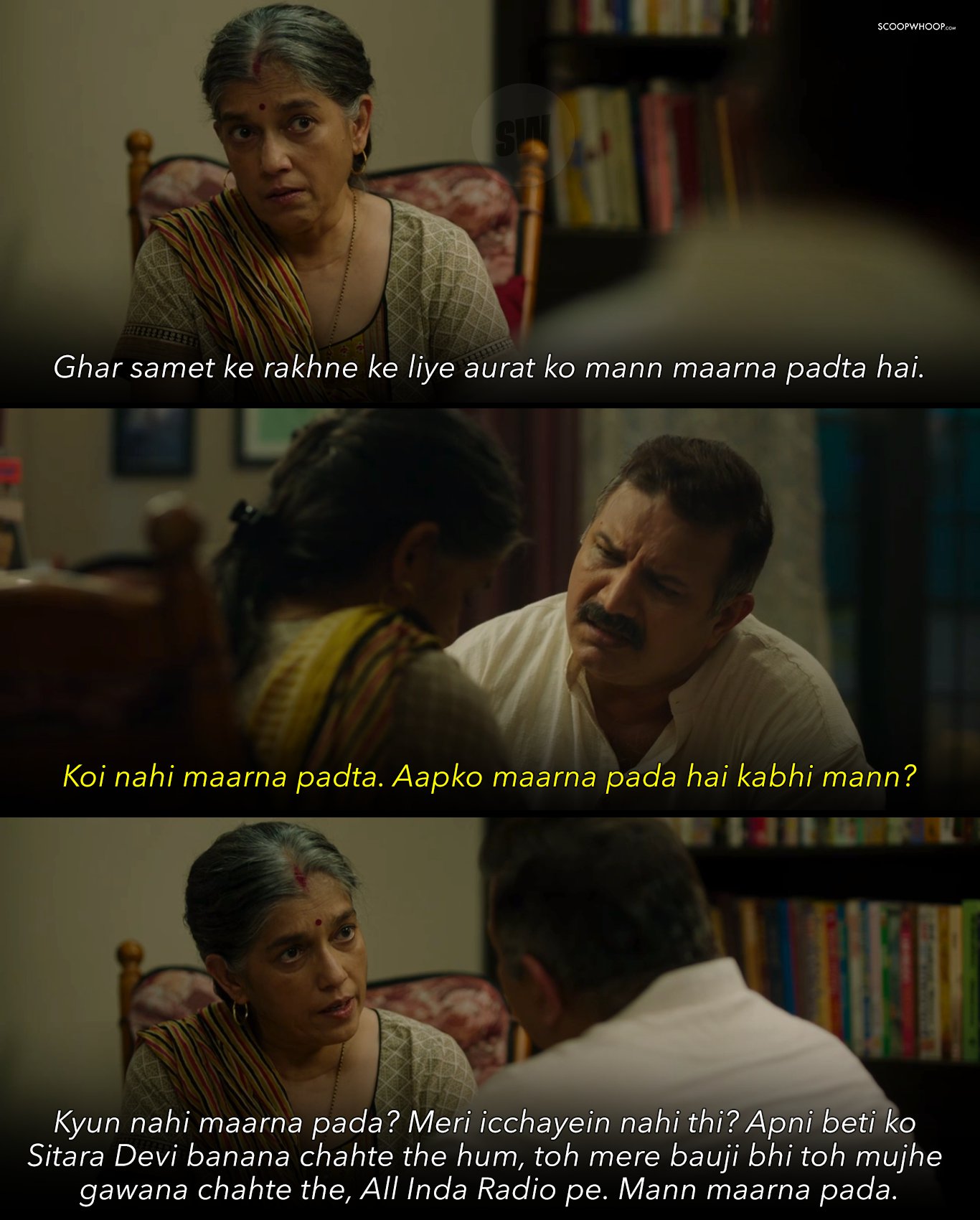
He does not wax eloquent on the role of a woman in the society or chides his wife for not speaking up before. Rather, he understands the situation, feels guilty for his role in it, and then makes an effort to change.
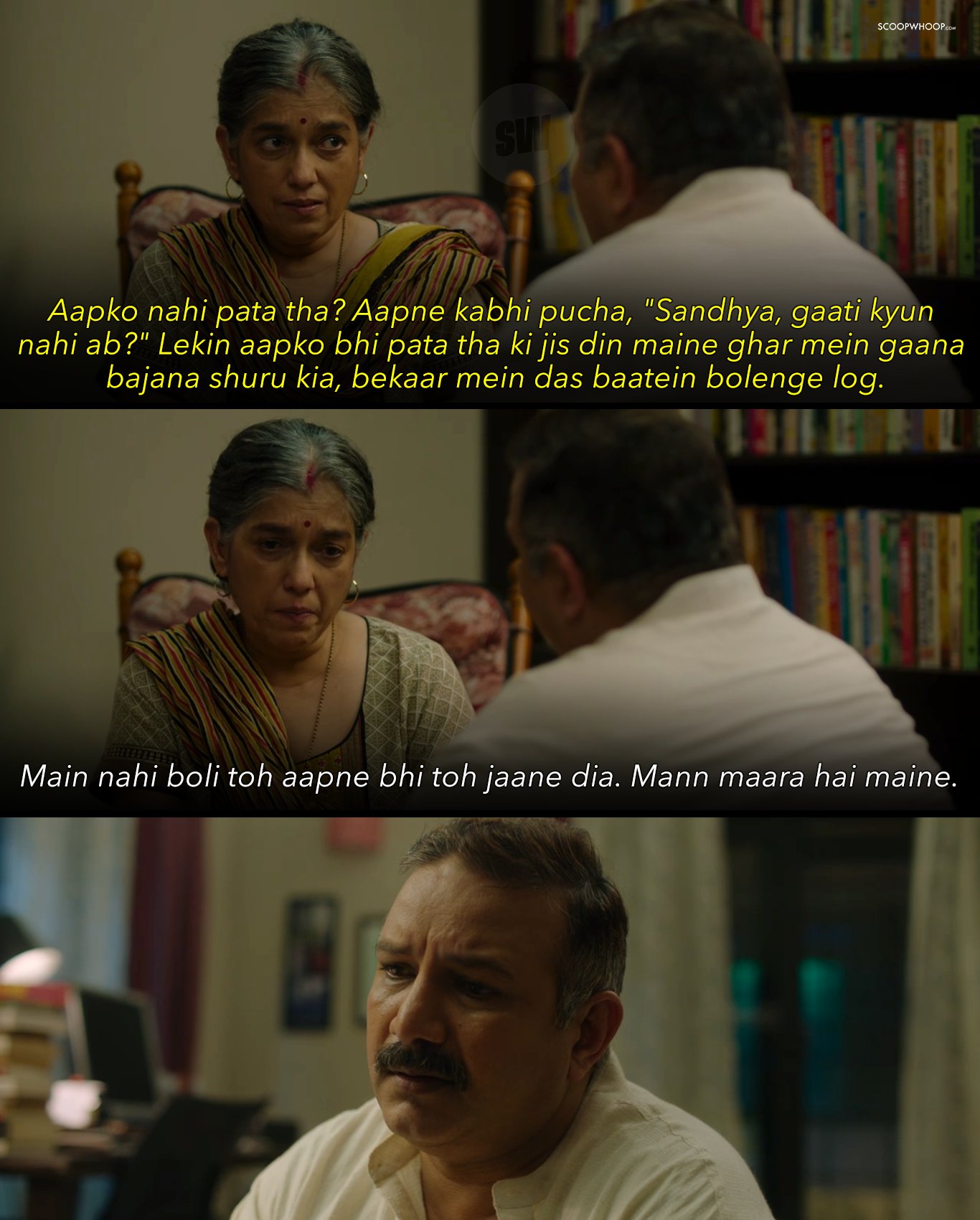
And he is the man who understands the limitations of a patriarchal society, but does not make excuses for it – rather, he accepts the challenge and does his bit to change the society.
The question he raises to his son-in-law, for hitting Amrita, is not rooted in toxic masculinity. It is, in fact, aimed at uncovering the root cause of the problem.
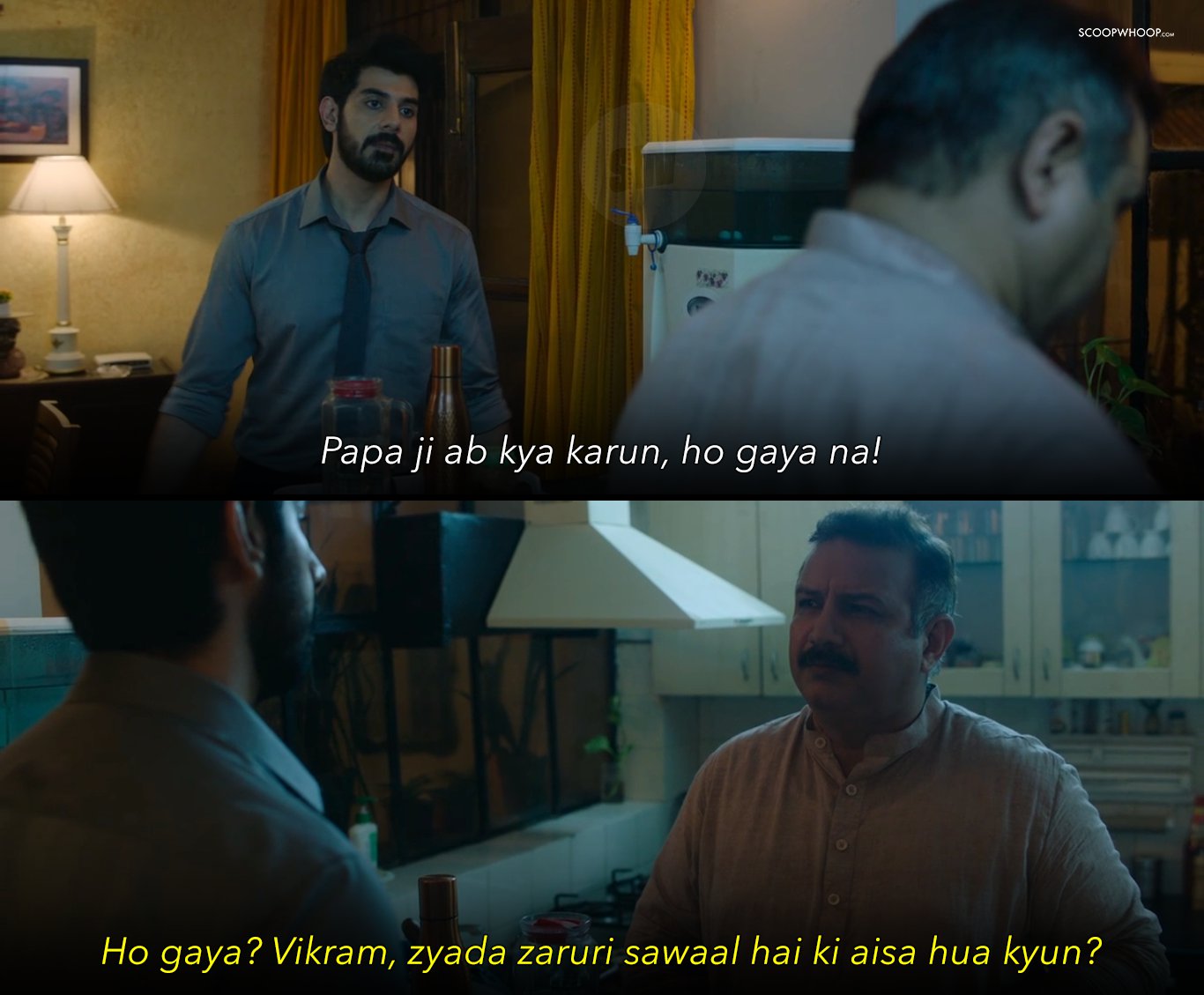
More than Vikram’s (Pavail Gulati) transformation at the end, it is Sachin Sandhu’s actions throughout the film that seem to pave the way forward for our society.
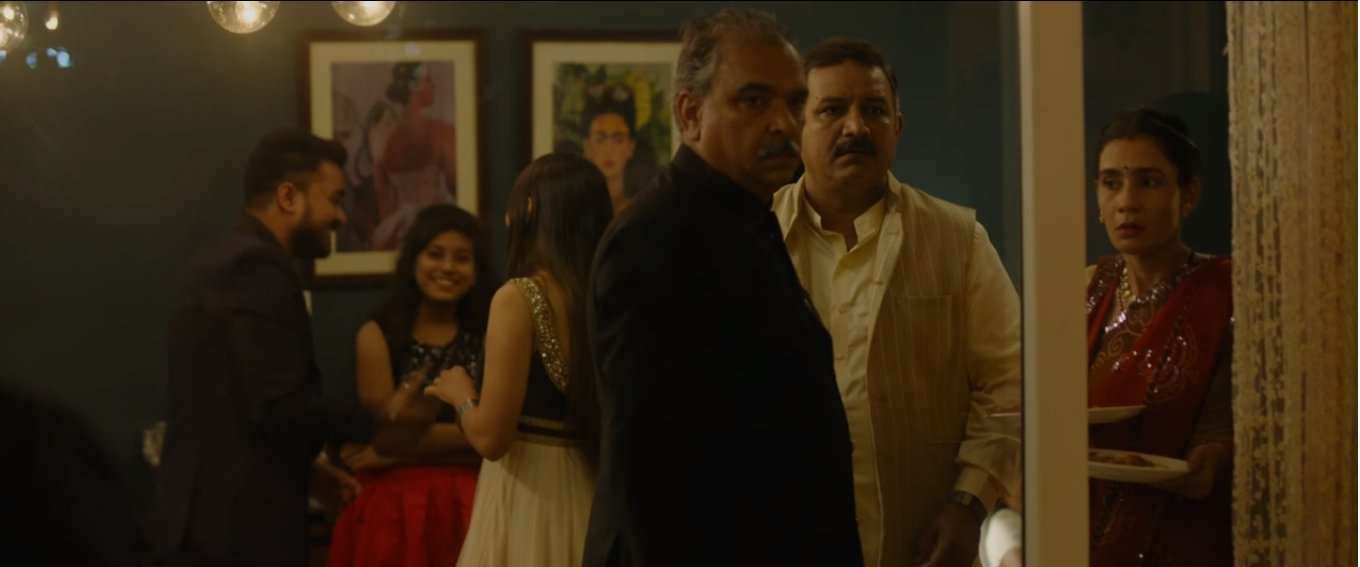
We will not change a patriarchal society by raising independent daughters but being dependent husbands.
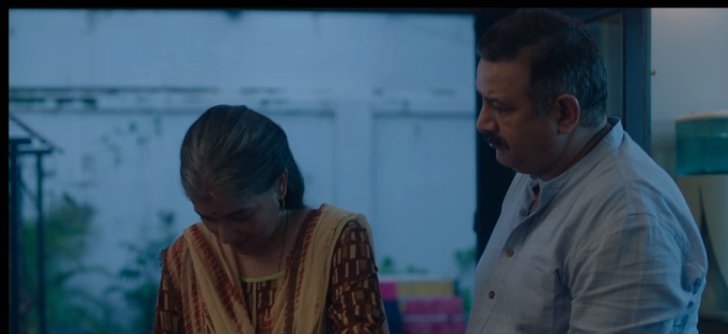
We will not change a patriarchal society by supporting our daughters, but not extending the same courtesy to our daughters-in-law.
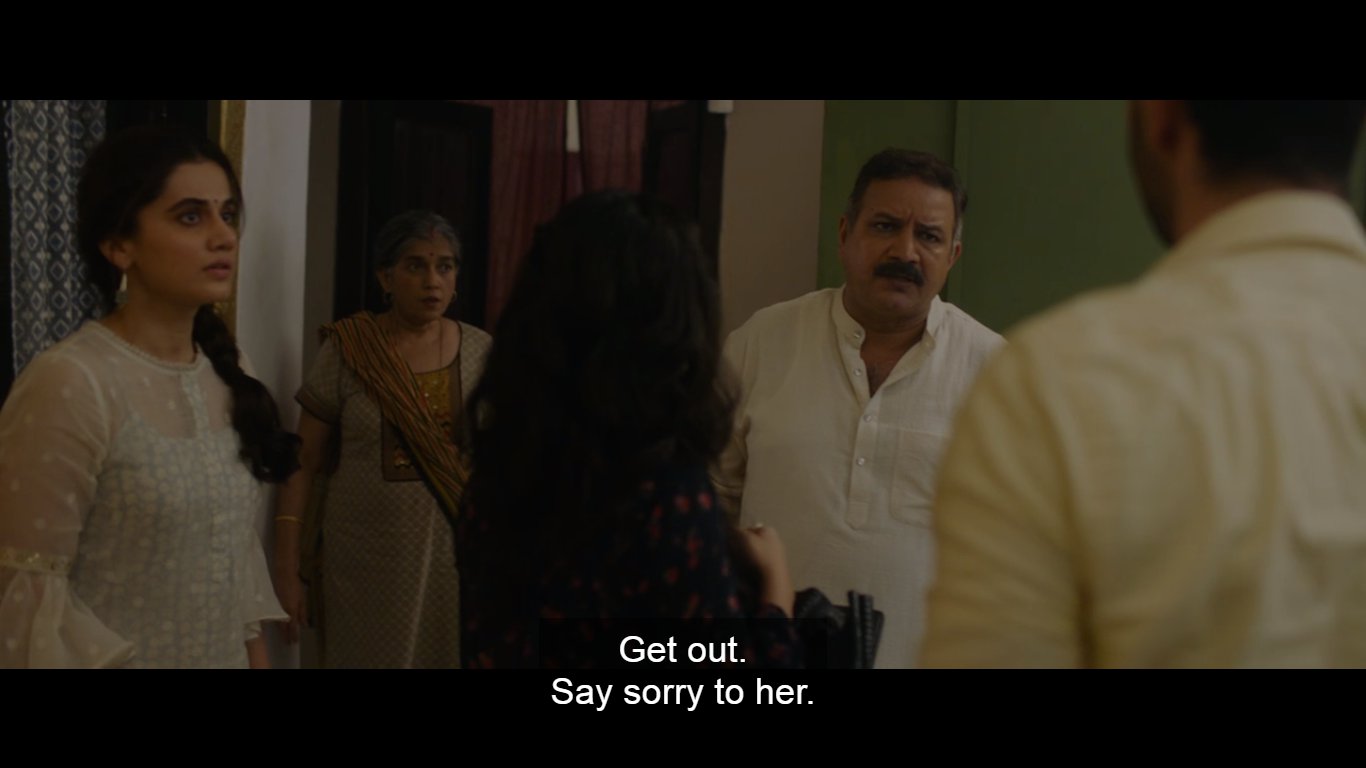
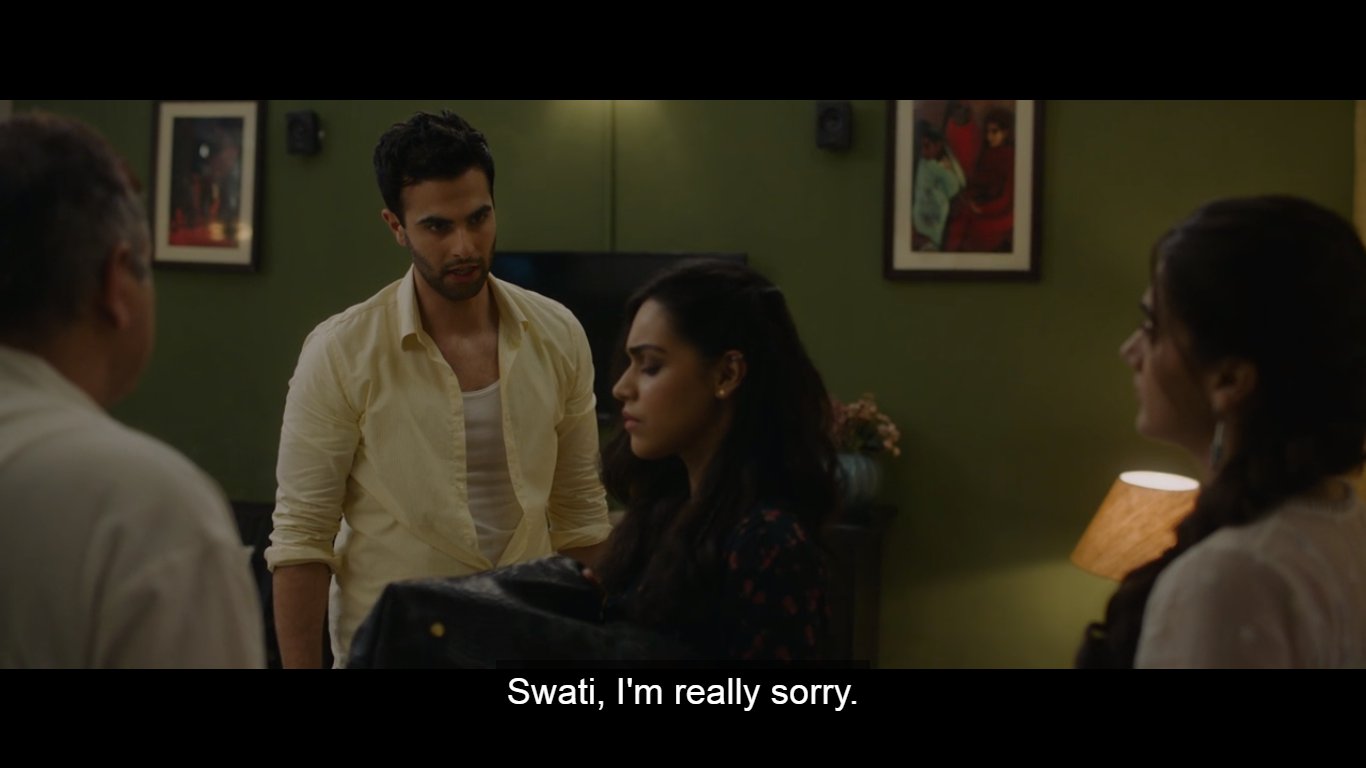
Effective change is only when we daily, consciously, irrespective of our age, experience, or gender, take a step to unroot the tendrils of patriarchy seeped in our behaviour.
Just like Sachin Sandhu does, when he realizes that he may have raised an independent daughter, but he unwittingly failed both, his wife in pursuing her dreams and his son in being a more respectful, understanding partner.

Of course, it is Kumud Mishra’s expert handling of a layered character like Sachin Sandhu, that allows the audience to not just relate to the character, but also take back the values he stands for. But Sachin Sandhu is also an extremely well-written character.

Here’s hoping that Bollywood goes beyond the tropes to gift us more such woke and relatable characters.
All images from Amazon Prime Video, unless specified otherwise.

















